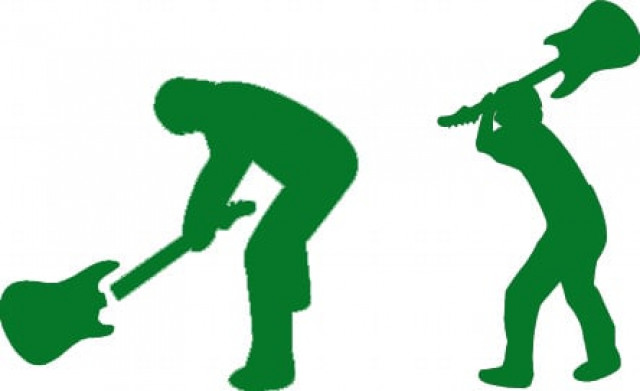It is often said that nations are at their strongest when faced with adversity, whether it be natural disaster or war. It’s supposed to bring out the best in everyone, a time when they decide to put aside all differences and unite for a common cause. During such times, however, the opposite is also true. While the general masses seeks guidance and unity under one cause, it provides an opportunity for the sly and corrupt to manipulate for their own benefit.
It is during such times that we see the emergence of art forms depicting social problems which would otherwise go unnoticed. Music is one of those art forms and probably the most successful form of expression when it comes to connecting with an audience and getting your point across.
It is during war and times of change that history has seen ordinary people bring out their guitars and harmonicas to gather in public places and vent their frustration in the form of music. These songs don’t require glamour and sex to make them popular; they have a mass audience because of their brutal honesty. A coal mine worker would relate more with a farmer singing about the injustice of minimum wage than a dressed up diva and her take on why she wants to get laid.
Although we had amazing artists like Joe Hill and Josh White singing “political” music way back in the 1920s and '40s, the influence of music on the general public came into the forefront in the late 1950s during the rise of the growing opposition to the war in Vietnam. It’s a time in history when music actually started to dictate where society was headed. Songs like Bob Dylan’s “Masters of War” or Joan Baez’s “Birmingham Sunday” set to music the doubt and anger that was rising towards the government and elite at the time. Suddenly, it felt as if everyone had a right to voice their opinion.
The same music came to support the civil rights movement in America with an aim to put an end to social injustice. The echoing call for liberty, equality and freedom was heard all over the world, through the aid of guitars, saxophones and harmonicas, with radios playing the opinions of soldiers, farmers and slaves into the long hours of the night. Pete Seeger’s “Where have all the flowers gone” stands as a testimonial to the effort these artists were putting in to bring about a positive change in their society. Adamant in their stance for civil rights, these singers risked their very existence by being so vocal against what they deemed to be wrong. They took a stand. And since we’re on the subject, it seems necessary that I give Phil Och's a mention.
When you listen to Bob Dylan’s “The Lonesome Death of Hattie Carroll,” it doesn’t tell you a story any of us would have trouble relating to. In fact, it pricks your conscience and makes you yearn for change in your social environment. The song doesn’t preach political upheaval or violence, either. It merely raises an issue and lets society ponder over it. For us, Hattie Carroll might as well be representing the two unfortunate brothers in Sialkot killed at the hands of society, or the Christian nurse in Karachi who was raped by her teachers and did not receive justice. The point is, the song makes us question our contribution to society and whether or not it is enough.
That is what protest music is all about. It doesn’t preach breaking windows, smashing cars or burning down KFCs. It sheds light on today’s social injustices and the rights of peoples often ignored by the ruling masses. It makes you realize that supporting your country during war might make you a nationalist, but it doesn’t necessarily make you patriotic.
It is unfortunate that where Pakistan’s mainstream music industry arguably flourishes, artists delving into the roots of conflict and social injustice are a rarity. We have artists like Ali Azmat, who happily preach their anti-west hatred through music and claim to be bringing the nation towards a “revolution”.
While I find it difficult to take him seriously, I believe he represents a bigger problem. Pakistani artists today lack the conviction and zeal groups like “The Clash” to do anything productive for society. It’s all well and good to sing about America and how the evil Jews are out to get us, but it isn’t exactly doing us any favours. It amazes me that for a country plagued with war, terrorism, social uprisings and natural disasters, our music industry remains oblivious to the genre of topical songs.
As far as I know, this blatant ignorance to our society can only be because of two reasons.
1) Either these artists lack the talent of creative songwriting to make anything of our plight - or -
2) they simply don’t care.
After all, most of our mainstream artists end up in India. Why would a rival state, with a flourishing and wealthy music industry, be interested in songs that represent the character of Pakistan’s social problems?
Our music industry needs to reconnect with itself and try taking the money out of their lyrics because until that happens, we’re not getting any better.
The headline of this post has been changed at the request of the author.
The lonely death of the protest song
For a country plagued with war, terrorism, social uprisings and natural disasters, our music industry remains oblivious to the genre of topical songs.



COMMENTS
Comments are moderated and generally will be posted if they are on-topic and not abusive.
For more information, please see our Comments FAQ